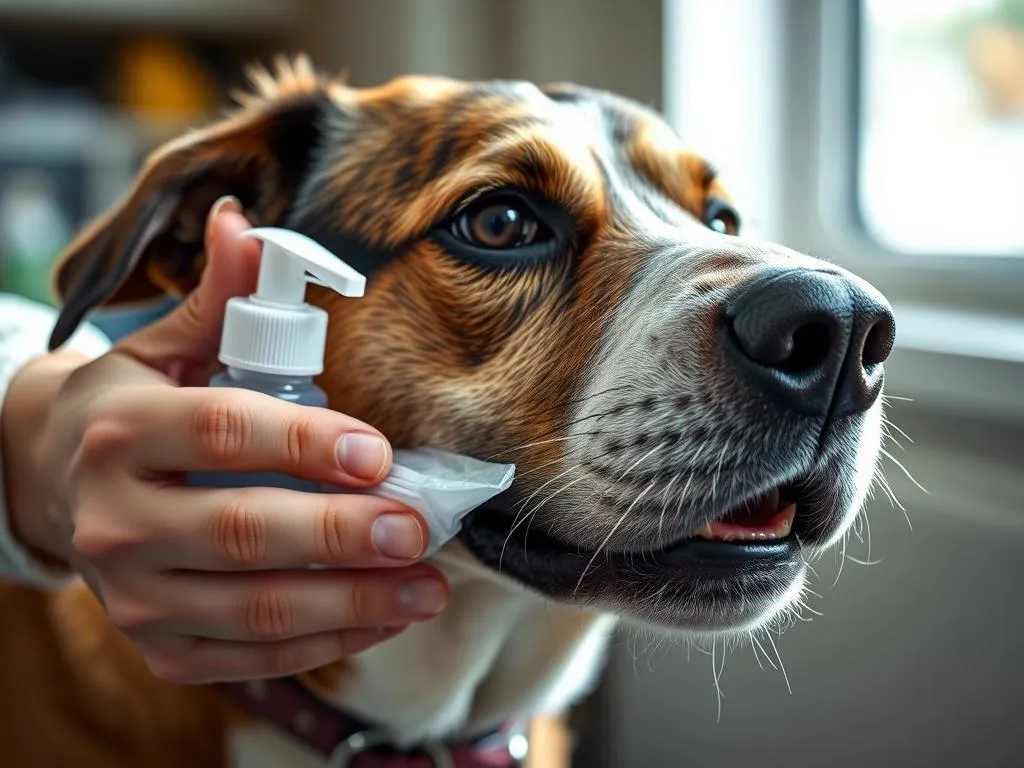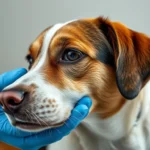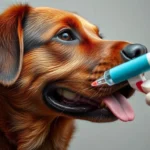
Introduction
Dogs are known for their inquisitive nature, often leading them to explore and taste everything within reach. Unfortunately, this can sometimes include household products that are not safe for them, such as hand sanitizer. As the use of hand sanitizer increased due to health concerns, so did incidents of dogs ingesting these products. Understanding the risks and knowing the appropriate actions to take can make a significant difference in ensuring your furry friend’s safety.
Understanding Hand Sanitizer
Ingredients in Hand Sanitizer
Most hand sanitizers contain active ingredients like ethanol or isopropyl alcohol, which are effective in killing germs on the skin. In addition to alcohol, you may find other chemicals, such as fragrances, glycerin, and various thickening agents.
The two primary formulations of hand sanitizer are gel and liquid. Gel sanitizers often contain a higher concentration of alcohol, making them potentially more dangerous if ingested. In contrast, liquid sanitizers may have varying concentrations, but both types can pose risks to dogs.
How Hand Sanitizer Works
Hand sanitizers serve as a convenient method for disinfecting hands when soap and water are not available. They work by breaking down the cell membranes of bacteria and viruses, rendering them inactive. However, dogs metabolize substances differently than humans. While a small amount of alcohol may not affect a person significantly, it can lead to serious health issues in dogs.
Immediate Risks of Ingestion
Toxicity Levels
The toxicity of hand sanitizer varies based on its formulation. Generally, products with a higher concentration of alcohol pose a greater risk. For instance, most gel sanitizers contain between 60% to 95% alcohol, which can lead to alcohol poisoning in dogs.
Factors influencing toxicity include the size of the dog and the amount ingested. A small dog that consumes a small amount can be at risk of severe toxicity, while a larger dog might tolerate a higher amount without immediate danger. Nonetheless, it’s crucial to treat any ingestion seriously.
Symptoms of Hand Sanitizer Poisoning
If your dog ingests hand sanitizer, you may notice various symptoms, including:
- Vomiting
- Lethargy
- Confusion or disorientation
- Excessive drooling
- Slow or irregular breathing
In severe cases, dogs may experience seizures or respiratory distress, both of which require immediate veterinary attention.
What to Do If Your Dog Ingests Hand Sanitizer
Assessing the Situation
The first step is to assess the situation. Determine the type of hand sanitizer your dog consumed (gel or liquid) and estimate the amount ingested. Observing your dog for any unusual behavior or symptoms is crucial. Look for signs of lethargy, changes in appetite, or gastrointestinal disturbances.
Immediate Steps to Take
If you suspect your dog has ingested hand sanitizer, contact your veterinarian or an animal poison hotline immediately. Do not wait for symptoms to appear. In some cases, your vet may advise you to induce vomiting, but this should only be done under their guidance.
When to Seek Veterinary Care
You should seek veterinary care if your dog exhibits any severe symptoms mentioned earlier or if you are unsure about the amount ingested. Bring the product label or any remaining sanitizer with you to the vet, as it will help them assess the situation more accurately.
Treatment Options
Veterinary Assessment
At the veterinary clinic, your dog will undergo a thorough examination. The veterinarian will inquire about the incident, including the type of hand sanitizer and the quantity consumed. Diagnostic tests such as blood work or imaging may be necessary to assess the internal effects of the alcohol.
Treatment Strategies
Common treatments for hand sanitizer poisoning involve administering activated charcoal to absorb the toxins and intravenous fluids to prevent dehydration and support recovery. The veterinarian may also monitor your dog for changes in vital signs and behavior throughout the treatment process.
Preventative Measures
Educating Dog Owners
Understanding household hazards is vital for all pet owners. Keeping products like hand sanitizer out of reach is the first line of defense. Store sanitizers in cabinets or high shelves, and educate family members about the dangers of leaving these products unattended.
Alternatives to Hand Sanitizer
When it comes to hand hygiene around pets, consider using pet-safe sanitizing products or simply washing your hands with soap and water. This approach minimizes the risk of exposing your dog to harmful substances while ensuring proper hygiene.
Conclusion
In summary, if your dog has ingested hand sanitizer, assess the situation promptly, and seek veterinary advice. Familiarizing yourself with the ingredients and potential risks associated with these products can help you act quickly and efficiently in a crisis. Always prioritize your pet’s safety and consult with your veterinarian for personalized advice.
FAQs
What should I do if my dog licked hand sanitizer?
If your dog licked hand sanitizer, monitor them for any signs of illness and contact your veterinarian. The amount ingested and the specific product used will determine the severity of the situation.
How can I tell if my dog is experiencing alcohol poisoning?
Signs of alcohol poisoning in dogs include vomiting, lethargy, confusion, slow or irregular breathing, and seizures. If you observe these symptoms, seek veterinary care immediately.
Is all hand sanitizer dangerous for dogs?
While all hand sanitizers contain ingredients that can be harmful, those with higher concentrations of alcohol pose a greater risk. Gel sanitizers typically have a higher alcohol content compared to liquid versions. Always check the label and keep these products out of reach from your pets.
Can I prevent my dog from getting into hand sanitizer?
Yes, by educating yourself about household hazards and implementing safety measures, such as storing products on high shelves or in locked cabinets, you can significantly reduce the risk of your dog accessing potentially harmful substances like hand sanitizer.
What should I do if I’m unsure whether my dog ingested hand sanitizer?
If you’re uncertain about whether your dog ingested hand sanitizer, it’s best to err on the side of caution. Contact your veterinarian or an animal poison hotline for guidance. They can help you assess the situation and advise on the next steps.
By staying informed and proactive, you can ensure your dog’s safety in an environment where household products pose potential risks.









